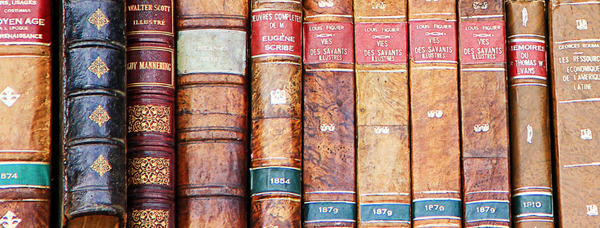World Book Day - Opera Style
Posted by Cindy Battisti on 03 08 2019
You may have heard that World Book Day is this week! So, I was wondering… what books have you read that connect to your opera journey?
Most of these are easily found for free on Ibooks (There is so much available for free that I rarely buy books- mainly these are older works but that works fine for opera fans!)
Here’s some of mine:
Malory’s Morte d’Arthur (Wagner’s Parsifal) I was maybe 11, when I started my life long King Arthur/Holy Grail journey. Whenever I am at a loose end I enjoy picking up this thick book which can be read in entirety as a big project or in nice compact chunks following various knights and tales. I just love this book; It will be on my bedside table forever.
Goethe’s The Sorrows of Young Werther (Massenet’s Werther). I was forced to read this not once but TWICE in college. I hated it and had no sympathy for the guy who can’t pull himself together and sees a bullet as the answer. A couple years ago I re-read the book. While he still tries my patience I realize now that he probably needed medication for depression which did not exist in his day. I discovered that my impatience with him stems from a word in the title: young. Goethe does an excellent job of showing a man who does not yet have enough life experience to temper his emotions both good and bad. But I still think college students would be better off reading Faust.
Goethe’s Faust (Gounod’s Faust) You get so more out of this read than from the opera which glances over the narrative. It is a play, technically in a poem form, but a good translation is easy to follow. Whenever I read it I just want to write down endless witty or deep rhyming bits. Goethe is older when he writes this and has lots of neatly sized chunks of wisdom to impart.
Dumas’ Lady of the Camellias (Verdi’s La Traviata) Well worth a read, you get more depth of story than you get to see in La Traviata. Marguerite is really juggling a lot of balls in the air with different men out of financial need. The character of an older–retired-courtesan is also heartbreaking as she is dependent on Marguerites generosity to simply survive. You also get a more detailed look at “Alfredo’s” love and emotions. You won’t forget when he has her body exhumed for “closure”.
John Luther Long's Madame Butterfly (Puccini's Madama Butterfly) While it’s hard to get past how the author writes her broken English, you may be pleased (or not) with the different ending. I quite like it and think about it anytime I see Madama Butterfly.
Pushkin's Eugene Onegin (Tchaikovski's Eugene Onegin) This is poetry, not prose and it did not endear me any further to Onegin. I think Tatyana probably had a lucky escape and decides rightly to spurn him in the end
Prevost’s Manon Lescaut (operas by Puccini/Massenet) I have a hard time liking the character of Manon, who seems quite selfish and has brought a lot of her troubles on herself. BUT it is a good story if only for the visualization of a very primitive New Orleans.
David Belasco's Girl of the Golden West (Puccini's La Fanciulla del West) I'm still in the process of reading this but I can already tell you that you get a better understanding of both Minnie and Dick and their backgrounds.
The Saga of the Volsungs and The Prose Edda I was a fan of mythology before I was seriously into opera. When I learned about the Ring Cycle I was curious – who is this guy who can't get any part of the story right? But my interest in these tales led me into a Ring obsession that was my gateway into my opera journey.
As an aside- if you like the Ring you will really enjoy this book in which Stephan Grundy brings the mythology to life with gorgeous visualization and historical detail. Click for Amazon link: Rhinegold
So as we look forward? What books have you
read that would make a good opera?
.


